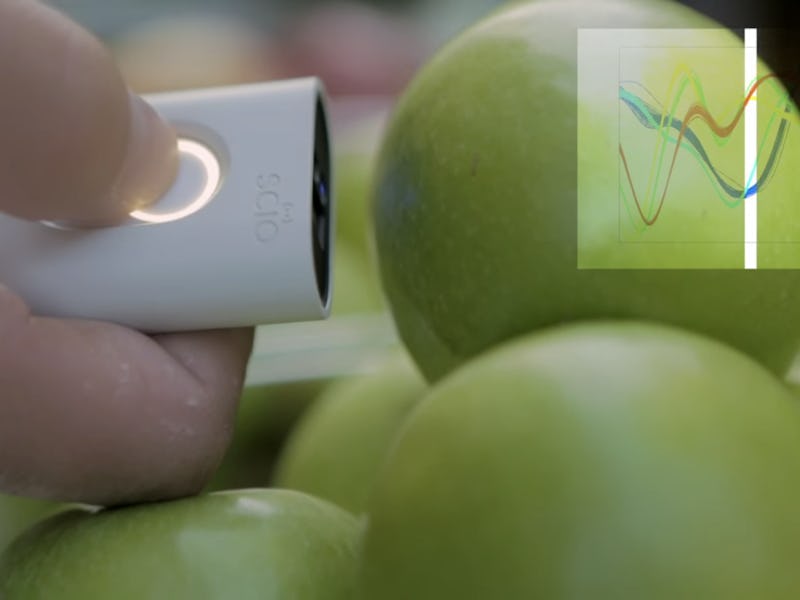The SCiO Mini-Spectrometer Will Analyze Your Food's Molecules for Fat, Sugar, and Calories
Oh, it can also tell you the molecular structure o f... pretty much anything.

There’s an art to picking out ripe fruit.
You push on the end of a cantaloupe and smell it, test the firmness of an avocado, tap on the outside of a watermelon. It’s kind of a charming process, but not exactly precise. But because we’re rapidly progressing toward a fully-interconnected internet of things, Israeli startup Consumer Physics has developed a device that promises to do all of that for you and more.
Called SCiO, it looks like a tiny, sleek garage door opener that contains a miniaturized Near Infrared (NIR) spectrometer. It’s “the world’s first molecular sensor that fits in the palm of your hand,” trumpets a promotional video posted on the company’s YouTube.
Usually, NIR spectrometers are bulky, awkward machines used by hospitals and agricultural business, but SCiO is small enough to fit in a pocket and connected to a cloud-computing algorithm that analyzes its data on the fly and beams it to your smart phone. If that’s starting to sound jargon-y, the device is actually relatively simple — a small spectrometer absorbs light that reflects off of an object, and breaks it into a spectrum of light. The data from that spectrum goes to a cloud service run by SCiO, where a computer algorithm takes the data and uses it to determine the molecular structure of whatever you’re pointing it at.
Here’s a short video explaining how a traditional scientific spectrometer works.
Major agricultural businesses have been using this technology since the 1970s to determine how ripe fruit and other vegetables are, as well as analyze their nutritional value, but it hasn’t really been feasible for consumers to run every tomato they pick off the shelves through a massive spectrometer, until the SCiO managed to miniaturize the technology.
While analyzing fruit is the most obvious day-to-day use for the SCiO, Consumer Physics wants its device to be used in much of the same way as a Raspberry Pi — an easily programmable and configurable platform for a wide range of applications.
The company is releasing the device as a consumer model for $250, but for an extra $250, you get a “developer license” to program your own apps, which can use the spectrometer to take readings from pretty much everything. You can analyze your own body, check and see how your houseplants are doing, measure the densities and makeup of other objects. If the device works as well as it’s supposed to, it could make some really interesting changes in how we interact with the world.